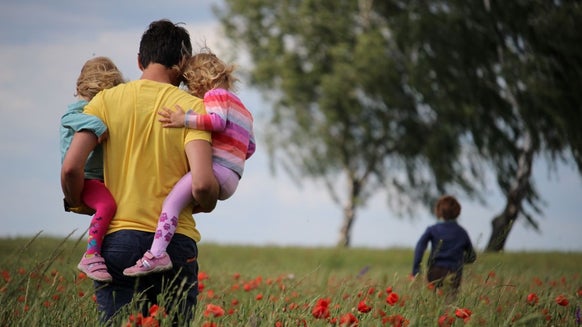10 Ways The Salvation Army Will Be Helping People In Need This Christmas
The Salvation Army is a worldwide Christian church and registered charity working in 128 countries, offering unconditional friendship, and very practical help to people of all ages, backgrounds and needs. It is one of the largest, most diverse providers of social services in the United Kingdom. The Salvation Army passionately believes that no one is beyond hope, however great their problems. That disadvantaged people are given respect and access to the practical, social and spiritual support they need to realise their God-given potential and recover their personal dignity.
Throughout the year The Salvation Army serves around 3 million nourishing meals at community and residential centres to older people, people experiencing homelessness and young families. The Salvation Army’s Emergency Response Unit attends hundreds of emergencies across the country to provide practical support to victims of disasters as well as those working for the emergency services. They have 62 residential Lifehouses for people experiencing homelessness, providing 3,200 beds a night. The Salvation Army organises over 400 parent and toddler clubs per week to enable children to play in safe environments and where parents meet with Salvation Army Officers and other parents for support. The Salvation Army will also support over 2,500 people get back into employment.
Christmas is one of the busiest times of year for The Salvation Army. Donations make sure that the church and charity can be there for those who need its support the most this Christmas.
Here are 10 ways The Salvation Army will be helping people in need:
1. Holding Christmas lunches for lonely, older and vulnerable people at centres across the UK.
2. Looking after people experiencing homelessness at Lifehouses over the Christmas period, with Christmas lunches and events.
3. Providing an emergency food parcels programme, giving people living in poverty a Christmas dinner for their family.
4. Offering drop-in winter shelters and emergency overnight accommodation for people living on the streets.
5. Delivering hot food, sleeping bags and small Christmas gifts (such as socks and handkerchiefs) to people forced to live on the streets.

6. Running an annual Christmas present appeal, giving presents to children who come from families living in poverty.
7. Delivering Christmas boxes to prisoners and their families as a message of hope and goodwill.
8. Supporting victims of trafficking over the Christmas period at Safehouses in the UK.
9. Having an emergency service vehicle and volunteers on standby to help emergency service personnel and those affected by disasters.
10. Entertaining the public and raising money for community projects as Salvation Army bands are out in force spreading Christmas cheer.
Hadleigh Farm Estate
Local Salvation Army churches - or corps, as they are known - and community centres offer a range of activities and services within local communities. People can get involved in all sorts of ways, through volunteering with fundraising initiatives, attending church services and helping with local activities.
Hadleigh Farm Estate is just one of these centres. It celebrated its 125 year anniversary this year and is still transforming lives today.
In 1891 The Salvation Army bought 900 acres of farmland in the Essex village of Hadleigh and developed a pioneering social programme to empower people living in poverty and experiencing long-term unemployment. After 125 years of transforming lives The Salvation Army’s Hadleigh Farm continues to be at the heart of the local community today.

The Salvation Army marked the 125 year milestone in a service of thanksgiving at Hadleigh Farm Tea Rooms in May this year. The Salvation Army’s Divisional Commander, Major Norman Ord, said: “Hadleigh holds a special place in the hearts of Salvationists all around the world. The evolution and professionalism of The Salvation Army’s services at Hadleigh Farm models our Christian mission to care for people, to respond to their needs and empower them to reach their potential.”
Supporting the local community then, and supporting the local community now
The purchase of Hadleigh Farm in 1891 implemented the social manifesto of William Booth, founder of The Salvation Army. Men experiencing homelessness and unemployment in the East End of London were given the opportunity to escape the deprivation of the capital and move to Hadleigh Farm where they could learn new skills, principally agriculture and brick making. The aim was to give these men and their families a hand-up out of poverty, rather than a hand-out, in the hope that they would find employment and stay out of the workhouse.
The estate supported itself, selling its produce to the Southend community and trading bricks with London. By the end of 1892 the site incorporated a working farm, three brick works, a hospital and a Salvation Army church, as well as a tramline and railway for transporting agricultural produce and bricks from the farm to the wharf in Hadleigh Ray.

The services The Salvation Army runs at Hadleigh Farm have evolved over the years in response to need. By 1912 nearly 7,000 men had worked at Hadleigh Farm, with more than 60 per cent finding employment. As the Government developed its own welfare programme, the need for projects such as Hadleigh Farm became less urgent. In the 1930s the farm provided a place of refuge to Basque children during the Spanish Civil War, as well as around 70 Jewish refugees fleeing persecution in Germany and Eastern Europe.
Today, a team of dedicated staff and 58 volunteers keep the educational working farm running, welcoming more than 280,000 visits to the Hadleigh Farm Estate each year. There are currently 171 trainees with additional support needs enrolled at the training centre, which offers education and accredited qualifications to improve employability in carpentry, catering, horticulture, hospitality, construction, IT and retail. Trainees also benefit from onsite work experience at the tearooms and rare breeds centre.

The Salvation Army is always looking for new opportunities to serve the local community. Just last year, Essex County Council opened the Hub at Hadleigh Park and provided The Salvation Army with the space to run a café, reading room and a sensory room within the visitors’ centre. The Hub, which serves visitors to the redesigned site of the 2012 Olympic mountain bike course, also includes a bike shop and workshop.
The Salvation Army is a worldwide Christian church and registered charity working in 128 countries, offering unconditional friendship, and very practical help to people of all ages, backgrounds and needs. It is one of the largest, most diverse providers of social services in the United Kingdom. The Salvation Army passionately believes that no one is beyond hope, however great their problems. That disadvantaged people are given respect and access to the practical, social and spiritual support they need to realise their God-given potential and recover their personal dignity.







